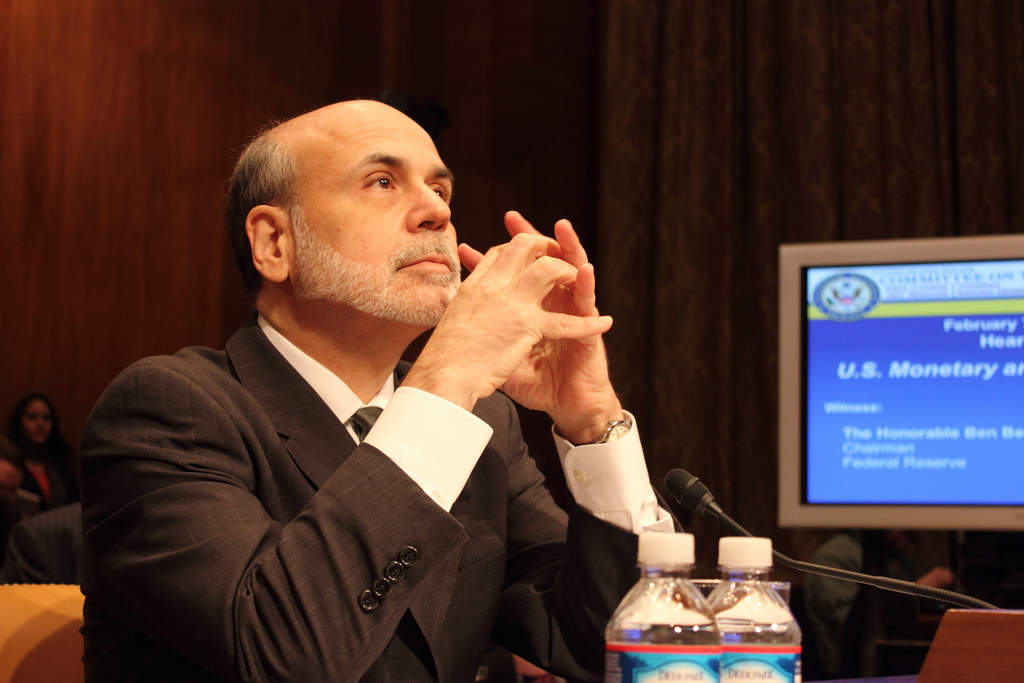WASHINGTON — Former Federal Reserve Chairman Ben Bernanke warned Monday that reduced defense spending could have adverse long-term economic impacts, including undermining technological innovations that ultimately produce jobs in the private sector.
Speaking at a Brookings Institution event, Bernanke said, “By far the most important (impact), certainly in the United States, has been the linkage between defense military appropriations and broader technological trends.
“That is one of the major sources of U.S. growth over time. We remain a technological leader. That’s one of our national strengths.”
Bernanke cited as examples the Manhattan Project and the creation of the Defense Advanced Research Projects Agency, the precursor to the Internet.
“One innovation I really like is laser surgery,” Bernanke said. “There has since been something like 55,000 patents related to laser technology. Things that have come out have been laser surgery, DVDs, barcodes.”
“If the same money had been spent on basic science that would have probably been an even better strategy, that would be even better … but the political system is not good at making long-run investments with uncertain impacts,” he said.
Bernanke says most reports about the size of military spending relative to other countries is misleading.
“One number that bothers me is a lot is the journalistic tendency to say that the United States spends more money than all our potential competitors combined. Therefore, we are militarily secure. That is a mistake,” he said. He said purchasing power parity is a better way to measure defense spending.
“Under PPP comparisons, instead of being 45% of world military spending, U.S. military spending is a third of global spending,” he said.
Bernanke, Federal Reserve chairman from 2006 to 2014, is a full-time scholar and frequent blogger for the Brookings Institution and an adviser to hedge funds Pimco and Citadel. His memoir “The Courage to Act” comes out in mid-October.


